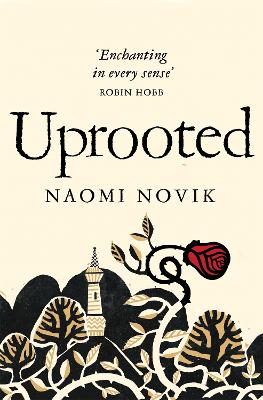Reviewed by nannah on
honestly?
It seems much more like a Slavic twist. Very few words were actually Polish, and very few aspects were Polish except the location (Dwernik, SE Poland--which is spelled Dvernik in the book).
While I'm on the topic . . . here are some of the names: Kyeva, Janos, Kasimir, Charovnikov, Ragostok, Boguslava, tsoglav, Olshanka. This is so very not Polish (plus, some names could have easily been Polish with alternate spellings: Kasimir --> Kazimierz; Janos --> Janosz; Nieshka --> Aga or Agusia (the diminutive of Agnieszka); mamusha --> mamusia. I'm not sure why the majority of the words/names weren't Polish (or misspelled)? Especially if the book is marketed as supposedly having a Polish flair.
The word "penny" was also used as a comparison in the book twice, . . . "like watching a penny falling away down a deep well." I'm pretty sure Poland didn't have pennies back in the 1600s (about when this book takes place). Poland uses złoty for currency. All of this shows a lack of care for research and for the setting. Or just laziness.
Okay, I'm done ranting about that . . . for now. On to the story itself--which is incredibly convoluted. There were so many sideplots, and the plot itself was not well defined. 150 pages in (and ok, I have the advanced readers copy, so maybe things were corrected later?) and I'm still not sure what the plot is. Sure, there's lots of mini climaxes here and there, but I'm not sure what the overall plot arc could possibly be. I was fairly sure after page 150 that the plot was about the MC Agnieszka and her "mentor" the Dragon vs the evil, corrupted Wood, but then it abruptly changes later, mentioning a long-lost queen. Everything takes abrupt turns, and there's nothing holding everything together.
The book is also incredibly distasteful Agnieszka's relationship with the Dragon is so ABUSIVE. He's much older than her, and he makes her feel fall and scared. She has to make his meals like a good woman, and everything about them together just reeks of an abusive relationship. At one point he literally pins her down against the bed and tries to kiss her?? Not to mention almost every time he sees her he calls her "useless" or a "lunatic" or even a "witless muttonheaded spawn of pig farmers." She has much more chemistry with her friend Kasia, but I guess the author really just wanted to romanticize abuse.
Already at page 40, there's an attempted rape scene (that does NOTHING for any of the characters, plot, etc.). And when Agnieszka attempts to defend herself and protect herself, she gets insulted by this oh-so-romantic Dragon. I don't understand the appeal.
Okay. I'll move on.
The main feature of the book, the magic is completely without rules and system. I'm almost rolling my eyes every time magic is used. There's no limit to what magic can and can't do, and things conveniently change when needed. Along the same line, there's no real-world consequences for anything or anyone. The main characters can carry three grown adults over miles, they can literally have an arrow through their chest, put magic potion on it, and BAM! they're ready for more action. I just didn't care anymore by the end of it.
And so, yeah, I really didn't care for this book.
Reading updates
- Started reading
- 5 September, 2015: Finished reading
- 5 September, 2015: Reviewed
